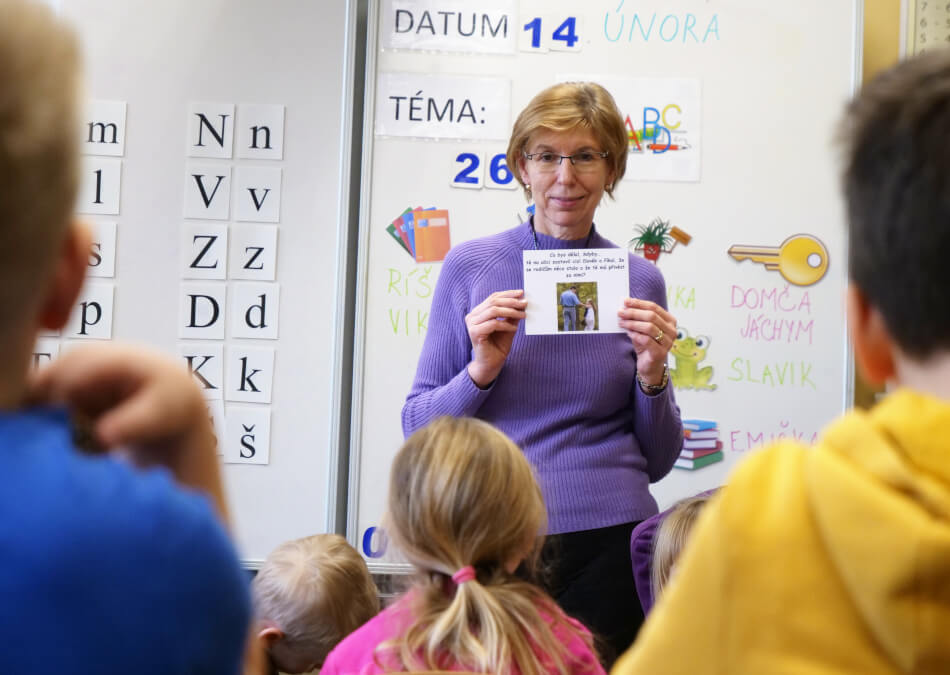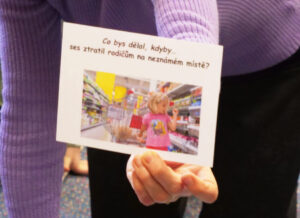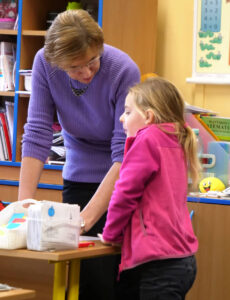The first-graders (pupils in the first year of elementary school) are very vulnerable. They are just getting used to the school environment, atmosphere, duties and rights related to their new role. And that is why the chance to share their feelings, doubts, fears and various questions with someone can be a real blessing for them.
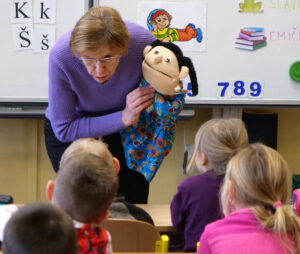
Petra accompanied by Zofka – a necessary puppet helper that Petra uses in communication with children and to attract their attention.
Petra Stranska, one of the Healthy Youth Workers, is not afraid of talking about uncomfortable topics. And what is more, she can do it in a way children can understand.
In February, she spent two hours with a class of first-graders. She talked to them, asked and answered questions, listened to their stories and discussed with them specific situations which could arise and could be challenging for them to both intellectually and emotionally.
After the opening question “What do you enjoy?”, which works as an icebreaker, she moves on and inquiries about the topic: “What do you imagine when I say the word danger?”
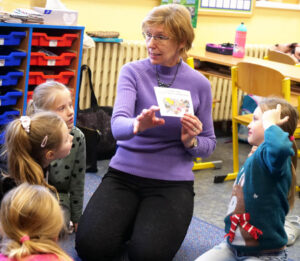
Children are invited to discuss the topic. Everybody can express their opinion, experience, reflection…
Each child perceives the concept in a slightly different way; however, the class can come to an agreement on situations that are generally considered threatening. Petra has already prepared pictures with stories for some of the typical situations so within a few minutes they usually will get engaged in heated discussions about how to act if, for example…:
… I get lost in the city.
… Someone at school hurts me.
… A big dog is chasing me.
… An adult does strange things to me at a summer camp.
… A strange adult approaches me and wants to give me something or take me somewhere.
With extraordinary sensitivity and deep understanding of children’s world Petra summarizes everything they discussed together and provides them with clear answers.
From time to time the chatting is replaced by physical activities or playing games on the carpet. Kids look visibly relieved from their regular school activities and learn a lot of new practical skills.
At the end of the program Petra hands out a flyer to the children, describing briefly and clearly all the important facts they should remember about dangerous situations.
One of the practical tips is to learn by heart the phone number of at least one of their parents. Children practice this immediately – some of them have already known the number, while other kids realize they want to learn a phone number of their parents too.
A sweet moment occurs when a little girl shares a particular story about how remembering her mom’s phone number helped her.
I am aware that such program is a great practical addition to the school curriculum of first-graders. And there is nothing like when somebody creates such a great program and presents it correspondingly to the kids. Petra has managed this excellently.
Martin Stavjanik, the Authorized Supervisor of the HY Program workers

